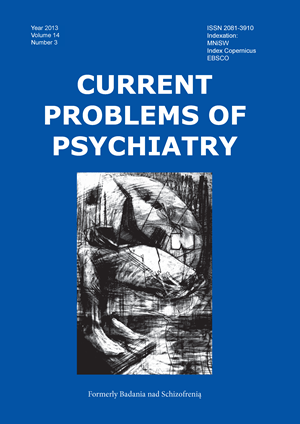The need for medical and psychological help to children from foster families: case study
Keywords:
foster family, impairment of attachment, deprivation, traumas, break of emotional bonds, child’s destructive behavior, professional training, social supervisionAbstract
This research is aimed to analyze the case of a ten year old boy who after five years of living in a foster family was moved to the institution with a 24-hours medical care. The research described in this article was conducted in compliance with ethical rules and does not contain any personal data of the respondents.
Experienced in childhood impaired attachment child traumas received as the result of losses and improper care provided by the biological parents can provoke prolonged pathological effects. The case of this ten year old boy shows how the hidden information about his mother’s death, and frequent losses of important people initiated the boy’s destructive behavior.
Accumulation of situations that exceeded the child’s adaptive potential such as transition from the elementary to secondary school, learning difficulties, foster parents divorce and new foster mother’s marriage served as the reasons for this destructive condition.
The limited range of important people increased the pathological influence of traumatic situation. The case described demonstrates the importance of professional supervision provision to foster and alternative care families in order to prevent the secondary traumatizing of children. Good training of alternative caregivers and control of their expertise will increase their abilities to partner interaction in the team of professionals to protect the child.
References
1. Асанова Н. К. Психосоциальное развитие младенцев и детей, воспитывающихся в учреждениях. W: Методическое пособие. red., Н. К. Асанова. Мoskva; Институт дтской психотерапии и психоанализа: 1997: 32.
2. Бевз Г. М. Прийомна сім’я: соціально-психологічні виміри: монографія. Кijóv; Вид. Дім «Слово»: 2010.
3. Большакова Л. Н. Социально - психологическая адапте ац ия родитлей и детей в приемной семье. Мoskva: РГБ: 2005.
4. Боулби Дж. Создание и разрушение эмоциональных связей. Мoskva; Академический Проект: 2004.
5. ГудманР.Детская психиатрия. Мoskva; Издательство «Триада - Х»: 2008.
6. Кифер Б. Как рассказать правду усыновленному или приемному ребенку. Как помочь ребенку осознать свое rн
7. Прошлое. ed. Б. Кифер, Д. И. Скулер. Кijóv: «Феикс»: 2009. ро
8. Котли П. Новые приемные дители. Первый опыт. Новосибирск; ООО «Дата»: 2000. рп
9. Лангмейе Й. Психическая деривацияв детском возрасте. red., Й. Лангмейєр, З. Матейчек. Прага: 1984.
10. Ледлофф Ж. Как вырастить ребенка счастливым. Принцип приемственности. Мoskva: Генезис: 2002.
11. Ослон В. Ребенок в приемной семье: проблемы воспитания. Пермь: ПОИПКРО: 2004. 11. Райкус Дж. Социально-психологическая помощь с сем ьям и детям групп риска: практ. пообие: в 4-х т.Питер, 2009.
12. Райкус Дж. Социально-психологическая помощь семьям и детям групп риска: практ. пособие: в 4-х т.Мoskva: Эскмо: 2009.
13. Соціальна робота в Україні: перші кроки. red., В. Полтавця. Кijóv: Видавничий дім «KM Academia»: 2000.
14. Bevz H. Partnerstwo w rodzinach przyjmujących (zastępczych) w ramach rozwoju systemów socjalnych: aspekty historyczne oraz współczesne (na przykładzie Ukrainy) W: Partnerstwo w rodzinie: istota i uwarunkowania relacji między rodzicami i dziecmi./ red., J. Truskolasra. Lublin;Wedawnictwo RUL: 2009: 237-245.
15. . Bevz H. Uwarunkowania uprzedzeń wobec dzieci u dorosłych. W: Sytuacja rodziny we współczesnym społeczeństwie – doświadczenia Europy Środkowo-Wschodniej. red., J. Gorbaniuk. Lublin: EL-PRESS: 2007: 90-97.
16. Diagnostic and Statistical Manual of Mental Disorders – Edition (DSM-IV) American Psychiatric Association, Washington DC., 1995.
17. Galewska G. O. Profesjonalizacji rodziców zastępczych. „Problemy opiekuńczo-wychowawcze”. Instytut Rozwoju Służb Społecznych. 2006; 454(9): 19-24.
18. Maruszewski T. Pamięć autobiograficzna. Gdańsk: GWP: 2005: 210-216.


